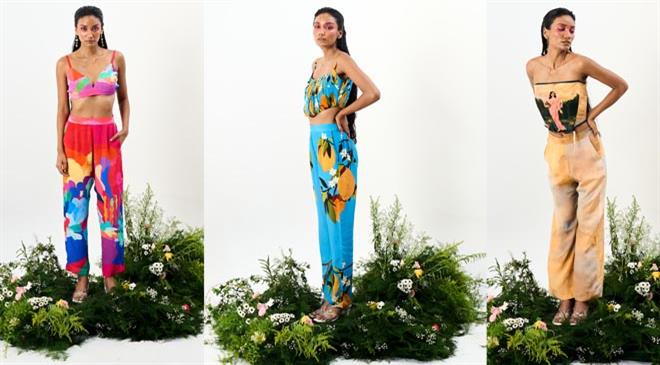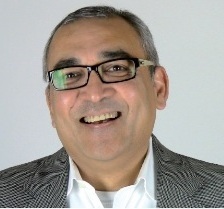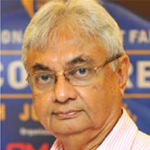
Pruthvi
Founder
Brand - Trazenie
Fashion can be beautiful and sustainable at the same time
Indian lifestyle brand Trazenie is known for crafting zero-waste and small batch clothing, beauty, and accessories, focusing on ethical and sustainable practices. In a chat with Fibre2Fashion, Pruthvi, the founder of Trazenie, shares the brand’s design philosophy and sustainable fashion trends that every fashion enthusiast should adopt.
Fibre2Fashion: Can you tell us about your design philosophy and how it relates to sustainability?
Pruthvi:
My design philosophy revolves around creating garments with great quality, timeless silhouettes, and prints that can be worn for a longer period of time. I believe in the concept of slow fashion, which promotes sustainability by encouraging consumers to invest in durable and versatile pieces. The moniker ‘Trazenie’ is a combination of the words ‘traverse’ and ‘amazing’, representing the brand’s journey in creating amazing, sustainable fashion.
F2F: Can you share the origin of the moniker ‘Trazenie’?
P:
The moniker ‘Trazenie’ is derived from the word ‘ostranenie’, which is a literary term coined by Russian writer Victor Shklovsky. Ostranenie refers to the technique of defamiliarisation or making the familiar seem strange, in order to encourage a fresh perspective and deeper understanding of ordinary objects or experiences. The term ‘Zany’ also contributes to the origin of the moniker, which means unconventional, eccentric, or creatively quirky. The combination of these two concepts represents the brand’s approach to design, which seeks to challenge traditional norms and perceptions, and create unique, sustainable fashion with a fresh and unconventional perspective.
F2F: What inspired you to become a designer focused on the environment, and how did you get started in this field?
P:
As a dancer and artist, I naturally gravitated towards fashion and beauty as a means of self-expression. I was inspired by the current global scenario and the direct correlation between our purchasing decisions and their impact on the environment. I believe that owning a brand that is conscious of its creations is not just an option, but the bare minimum for contributing towards a better future.
F2F: Can you walk us through your design process, and how ecological considerations factor into each step?
P:
My design process includes fabric selection, design creation, silhouette making, and construction. At every step, ecological considerations play a vital role. I prioritise the biodegradability of materials, longevity of the garment, and the quality of craftsmanship and construction to ensure that the final product is sustainable and eco-friendly.
F2F: How do you source materials for your designs, and what criteria do you use to evaluate their eco-friendliness?
P:
When sourcing materials for my designs, I prioritise materials that are biodegradable and eco-friendly. I evaluate their sustainability based on factors such as their impact on the environment, durability, and ethical production practices.
F2F: Have you faced any challenges or obstacles when designing sustainably in India, and how have you overcome them?
P:
Designing sustainably in India can pose challenges due to increased costs and limited availability of certain materials or techniques. However, we strive to find a middle ground by balancing sustainability with practicality, and making conscious choices in terms of materials, production methods, and pricing.
F2F: Can you share an example of a project you worked on where environmental impact was a key consideration, and how you addressed those challenges?
P:
Environmental impact is a key consideration in every collection we create. For instance, we avoid using synthetic fabrics and plastic in our packaging. We prioritise using natural, biodegradable materials and sustainable production practices to minimise our environmental footprint.
F2F: How do you balance aesthetic appeal with sustainability when designing products or spaces?
P:
We believe that sustainability and aesthetic appeal are not mutually exclusive. By focusing on classic silhouettes and timeless designs, we ensure that our products are not only sustainable but also fashionable. We believe that as long as the finished product is something we are proud of,and made sustainably and ethically, it will appeal to our customers.
F2F: Can you talk about any innovative or cutting-edge sustainable design techniques or technologies that you have used or are excited about?
P:
We are excited about the potential of bamboo-based fabrics as a sustainable alternative. While not necessarily cutting-edge, they offer new options for us as a small business owner, and we are constantly exploring innovative and sustainable design techniques and materials to incorporate into our collections.
F2F: Please share five sustainable trends that every fashion enthusiast should follow.
P:
Five sustainable trends for fashion enthusiasts to follow:
- Slow fashion: Embrace the concept of quality over quantity and invest in durable, timeless pieces.
- Upcycling and repurposing: Give new life to old garments through creative upcycling and repurposing techniques.
- Natural and eco-friendly materials: Opt for fabrics made from organic, biodegradable, and sustainably sourced materials.
- Ethical production practices: Support brands that prioritise fair labour practices, safe working conditions, and fair wages for workers.
- Minimalism and versatility: Embrace minimalism and versatility in your wardrobe by choosing versatile pieces that can be mixed and matched for different looks.
F2F: In your opinion, what is the future of sustainable design in India, and how do you see it evolving over time?
P:
The future of sustainable design in India looks promising. With increasing awareness about environmental issues and consumer demand for sustainable fashion, the industry is evolving towards more eco-friendly practices. As sustainability becomes a mainstream focus, we can expect to see more innovative and cutting-edge sustainable design techniques and technologies being adopted in India.
F2F: What advice would you like to share with aspiring fashion designers?
P:
- Follow your passion: Pursue what you love and are truly passionate about in the field of fashion. This will keep you motivated and driven throughout your journey.
- Educate yourself: Constantly educate yourself about various aspects of fashion, including design techniques, sustainable practices, and industry trends. Stay updated with the latest developments and keep learning from reputable sources.
- Experiment and be creative: Don’t be afraid to take risks and experiment with new ideas. Be creative and push the boundaries of conventional fashion to create unique and innovative designs.
- Embrace sustainability: Incorporate sustainable practices into your design process. Consider using eco-friendly materials, reducing waste, and promoting ethical production methods. Fashion can be beautiful and sustainable at the same time.
- Have fun and stay true to yourself: Enjoy the process of designing and creating fashion. Stay true to your own style, vision, and values. Fashion is a form of self-expression, so let your personality and creativity shine through in your designs.

Aseem Prakash
Rahul Mehta
Pradip Mehta
Bill D’Arienzo
Anurag Batra
Gabi Seligsohn
Fanny Vermandel
Arun Sirdeshmukh
Abhay Gupta
Rahul Mehta












_8.JPG)
